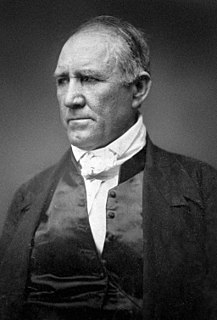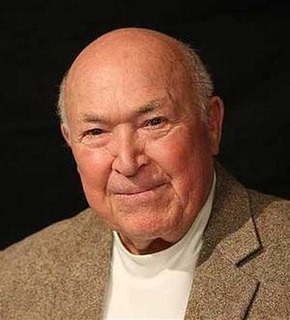A Quote by Adolf Hitler
In vowing ourselves to one another, we are entitled to stand before the Almighty and ask Him for His grace and His blessing.
Related Quotes
We are poor, feeble, and blind mortals when the eye of the Almighty looks through all worlds and by his power executes all things aright, and by his grace, he makes us all rich in Heavenly Gifts. In distress and in bereavements, we can look only to him. From mortals like ourselves we can derive no help.
We do not worship the Prophet. We worship God our Eternal Father and the risen Lord Jesus Christ. But we acknowledge the Prophet; we proclaim him; we respect him; we reverence him as an instrument in the hands of the Almighty in restoring to the earth the ancient truths of the divine gospel, together with the priesthood through which the authority of God is exercised in the affairs of His Church and for the blessing of His people.
Some souls think that the Holy Spirit is very far away, far, far, up above. Actually he is, we might say, the divine Person who is most closely present to the creature. He accompanies him everywhere. He penetrates him with himself. He calls him, he protects him. He makes of him his living temple. He defends him. He helps him. He guards him from all his enemies. He is closer to him than his own soul. All the good a soul accomplishes, it carries out under his inspiration, in his light, by his grace and his help.
For here we are so blind and foolish that we never seek God until he, of his goodness, shows himself to us. It is when we do see something of him by his grace that we are stirred by that same grace to seek him, and with earnest longing to see still more of his blessedness. So I saw him and sought him; I had him and wanted him. It seems to me that this is and should be an experience common to us all.
This is the amazing story of God’s grace. God saves us by His grace and transforms us more and more into the likeness of His Son by His grace. In all our trials and afflictions, He sustains and strengthens us by His grace. He calls us by grace to perform our own unique function within the Body of Christ. Then, again by grace, He gives to each of us the spiritual gifts necessary to fulfill our calling. As we serve Him, He makes that service acceptable to Himself by grace, and then rewards us a hundredfold by grace.
Man offers himself to God. He stands before Him like the canvas before the painter or the marble before the sculptor. At the same time he asks for His grace, expresses his needs and those of his brothers in suffering. Such a type of prayer demands complete renovation. The modest, the ignorant, and the poor are more capable of this self-denial than the rich and the intellectual.
But they all stood beneath the cross, enemies and believers, doubters and cowards, revilers and devoted followers. His prayer, in that hour, and his forgiveness, was meant for them all, and for all their sins. The mercy and love of God are at work even in the midst of his enemies. It is the same Jesus Christ, who of his grace calls us to follow him, and whose grace saves the murderer who mocks him on the cross in his last hour.










































